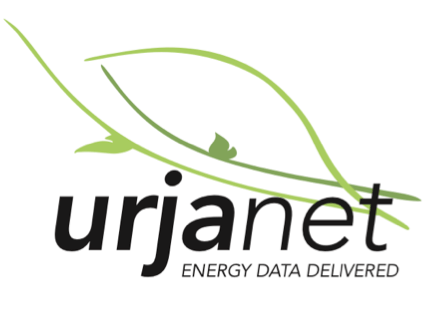Atlanta-based Urjanet announced today that it has closed a $4 million Series B round of funding, two years after its initial launch. The company provides energy data for heavy energy consumers, mostly in the form of enterprise customers, to help them to make better business decisions around current energy use, look at how future projects will impact energy expenditure, and see the return on investment being generated by their existing energy spend. The new funding comes from Grotech Ventures, as well as existing investors GRA Venture Fund, LLC and Imlay Investments Inc.
Energy consumption is an area of growing concern, since older methods of measuring energy use like reading the meter or checking your monthly bill after the fact have been replace with sophisticated, real-time data streams that can tell you exactly how much you’re using, and exactly where. Urjanet’s SaaS offering hooks into their existing software, including energy monitoring tools as well as business intelligence platforms like Salesforce and accounting systems, and then uses all of its information as well as outside sources detailing regional pricing, consumption rates, taxes and more to deliver insights to businesses looking for ways to be smarter about things like carbon footprint, or to move high-consumption facilities to places where local tax breaks make energy costs cheaper, for example.
“You can kind of think of us as the Bloomberg of energy data,” Urjanet CEO Sanjoy Malik explained in an interview. “We’re connected through our cloud-based platform to over 600 different utilities, and that utility footprint is expanding very, very quickly.” This is a growing need, according to Malik, first because energy is gaining more prominence in the corporate balance sheet as costs rise (two of Urjanet’s customers spend over $1 billion on energy annually, for instance), and also because businesses are becoming more interested in measuring their carbon footprint.
Carbon footprint is important to businesses now more than ever for a number of reasons; it’s an key measure of sustainability, something stakeholders of all stripes are increasingly paying attention to, and it can be important to customers interested in the reputation of a business, as well as NGOs who could represent a considerable headache if that aspect of the business isn’t well-managed. As energy providers become increasingly deregulated, too, and able to compete on price, the need of a clear picture of where spend is going becomes clear.
Urjanet’s new funding will help it grow its reach via sales and marketing, and also make new additions to its infrastructure, according to Malik. As for competition, Malik says that the overwhelming one is still bill payment vendors, who help with the complicated task of payment of bills at large scale but aren’t taking the kind of comprehensive look that Urjanet can provide. Overall, he says that few are working on delivering this as an actual data service, but other young companies like Gridium are looking to get into the space soon, so it could become a lot more crowded relatively quickly.
